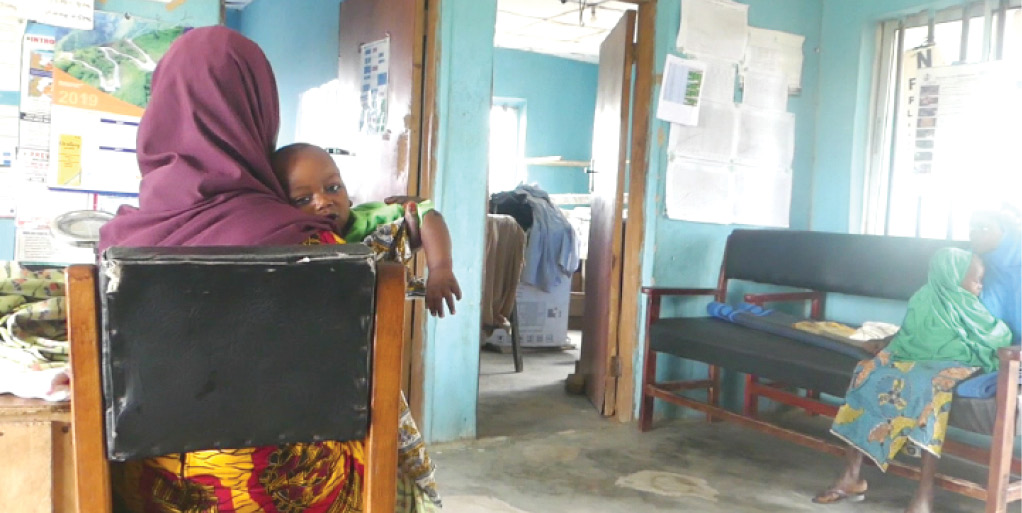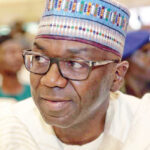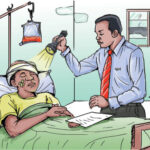The national dream is a situation where all Nigerians get the health services they need without suffering financial hardship. It is called universal health coverage. It is being pushed at the global level, and Nigeria believes its best bet to get it is primary health care.
Universal health coverage includes the full spectrum of essential, quality health services, from health promotion to prevention, treatment, rehabilitation, and palliative care across the life course.
Nigeria’s primary health care system has been on since the 70s, delivered through more than 30,000 primary health centres nationwide.
It is the first contact for any person with the health system, but it is still fraught with challenges.
A policy dialogue convened this week by Nigeria Health Watch to consider how the challenges can be addressed.
Challenges
In Nigeria, PHC services are delivered by PHC Centers, Basic Health Clinics (BHC) and Comprehensive Health Centers (CHC). The over 30,000 of these facilities are spread across 9565 Wards in 774 Local Government Areas.
They are overseen by the local government area authorities.
PHC has been the focus of initiatives like the Midwives Services Scheme, Maternal Newborn and Child Health Week, Revitalisation of Primary Health Care, Basic Health Care Provision Fund, and the ongoing Primary Health Care Under One Roof.
But a raft of challenges face the bedrock of healthcare in Nigeria: primary health care is fragmented in both governance and coordination; it is poorly funded; its services are not well integrated; a lack of confidence drives poor demand for PHC services; data collection and services are poor and unreliable.
The PHCUOR was thrown up in 2011 to address fragmentation in PHC. It ensures integration of services under a single management, implementor and monitoring and evaluation.
But its only being a national policy for a few years and its impact is yet to be felt.
The inability of PHC centres to provide basic medical services to the Nigerian population have made both secondary and tertiary health-care facilities experience an influx of patients. This has had its toll on the secondary and tertiary levels of care.
The result is a system meant to cater for 70% of Nigerians instead caters for only 20%–with a huge client burden transferred to secondary and tertiary care facilities.
Way forward
The way out of the PHC muddle is four pronged, according to Ekenem Isichei, chief executive officer ACIOE Associates (ACIOE), an advisory services firm based in Abuja: a public-private partnership, health insurance, rejigging primary health care and allowing more autonomy.
But the value proposition for health care—the drive to make politicians want to commit to funding health—is not “well articulated,” says Isichei.
Politicians would rather have capital projects like road construction on their agenda than health spending, he explains.
He says a “stronger value proposition” for health is required to aid active implementation. And more importantly to answer the question, “Is what’s coming from healthcare contributing to development?”
Ekiti has recently managed to increase its health sector budget by around 200%, the state’s health commissioner Oyebanji Filani said at the dialogue.
The state is also working to retain medical doctors on national youth service using a fellowship.
So far, eight in 10 medical doctors on youth service in Ekiti are retained to remain working in the state health sector, the commissioner says of changes the state has made in its health care delivery by retaining skilled health workforce to drive demand.
“At the start, we were very clear what our priorities were and we were very focused on what we wanted with the outcomes.”
The outcome for Ekiti could still take years to become manifest, says Filani, but for now the state is satisfied with the output it has—more than 80% coverage for routine immunization.
The romance between public and private sectors in health care is not new in Nigeria, but the success of PPPs has a sore point—the private sector may have the money to throw down but it wants value in return and will not waste funds as easily as the public sector, explains Tanimola Akande, a professor of public health at University of Ilorin.
“PPP that look so fine on paper do not eventually materials because of Nigerian factor, such as ‘what is in there for me?’” says Akande.
“The investor cannot easily waste its fund knowing the challenges with policy somersaults and what happens with change in leadership of the health facilities or ministries.
“However, a number of PPPs have worked quite well and have helped to reduce inefficiency in the system.”
Already the policy on PHC has shifted to include PHCUOR—having all services integrated and in-situ.
“Private sector groups like EHA Clinics, which started out in Kano, are building on integrated services and technology to offer primary care in states where they operate.
There is a but—at least four factors are needed to enable private sector engagement in primary care, says Anthonia Hananiya, chief medical officer at EHA Clinics.
“Training our healthcare practitioners and also investing on other cadres like CHEWs [community health extension workers]; community engagement and education, really changing the health seeking behaviour; implementation of health insurance scheme that works; leveraging on low-cost technology to collect the data to make informed decisions,” she says.

 Join Daily Trust WhatsApp Community For Quick Access To News and Happenings Around You.
Join Daily Trust WhatsApp Community For Quick Access To News and Happenings Around You.


